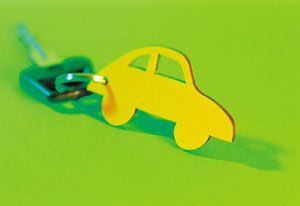Buying Versus Leasing A Car- Which Is Best?
 Cars mean something to all of us. If you’ve been lucky enough to get your hands on a luxury vehicle or sports car, the feeling you may use to describe them would most likely be along the lines of pure joy and euphoria. However if you’re driving a clunker from 80’s you probably swear at your car more than the participants of a typical episode of the Jerry Springer Show.
Cars mean something to all of us. If you’ve been lucky enough to get your hands on a luxury vehicle or sports car, the feeling you may use to describe them would most likely be along the lines of pure joy and euphoria. However if you’re driving a clunker from 80’s you probably swear at your car more than the participants of a typical episode of the Jerry Springer Show.
If you’re in the market for a new car, some of your time has probably been spent pondering over whether to buy or lease. Here’s some more information on buying versus leasing, including the advantages and disadvantages of each:
Buying:
Some may argue that the best option may be to buy new and look after the vehicle well until the last payment is made. At this point instead of selling, you keep the vehicle. The idea is that because the car is well looked after, maintenance costs are reduced throughout and after the vehicle is paid off.
The benefits of buying:
- Even though the car is registered in your name, the bank technically owns the car until you pay the last instalment. However at the end of the period you will have an extra asset under your belt.
- When you buy a car, insurance companies view you as lower risk and the monthly payments you’ll need to make will be lower.
Disadvantages of buying:
- Monthly payments are typically higher when buying the vehicle.
- When buying, the dealership will require a deposit or down-payment, which means that the initial cost when buying is considerably higher.
- If you buy, payments are amortized over a 48 – 72 month period and take the entire cost of the vehicle into account.
- Cars generally lose some of their value in the first couple of years to depreciation. However if the payment plan is taken over too long of a term then there’s a chance that you could end up owing more than the car is worth.
As with other loans payments are divided between capital and interest.
In the first couple of years paying your car back, more of the payment goes toward interest than capital.
*Leasing:
With this option you’re essentially renting the car for a fixed period (usually 36 – 48 months).
The amount you lease a vehicle for is determined by the difference between the purchase price and residual value, which is the pre-determined value of the vehicle at the end of the lease.
Benefits of leasing:
- When leasing, the initial costs that you incur when acquiring and maintaining the car are less.
- Monthly payments are much lower and leases require less of a deposit than purchased vehicles.
- When you buy a car you pay for depreciation based on entire value of the vehicle. However when leasing you only pay for the use and depreciation of the car for a set period.
Disadvantages of leasing:
- Most leases also come with mileage restrictions which means you’re only allowed to do per year (usually around 12 000 miles a year). If you exceed this, you pay more at the end of the lease.
- Insurance providers may also charge higher premiums for leased vehicles.
Pre-owned vehicles are another option worth looking into. For example vehicles that have been returned after expired leases can be bought for substantially less than their brand new counterparts.
This article was written by Daniel Stevens who is a fan of the great outdoors and when he’s not writing up a storm 😉 – that’s where you’ll find him.












